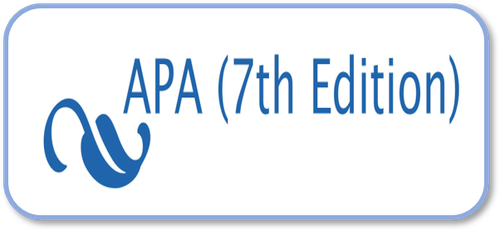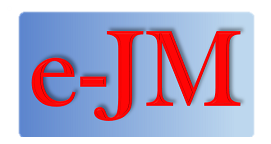Sustainable Organisational Identity In State Higher Education Institutions
DOI:
https://doi.org/10.24912/jm.v28i3.2083Abstract
This research examines the antecedent, consequence, and moderating factors for sustainable organisational identity. Specifically, based on the Resource View Theory, this research aims to examine the effects of anthropomorphism and agile leadership on sustainable organisational identity, the effect of sustainable organisational identity on competitive advantage, and the moderating effect of planned organisational change between sustainable organisational identity and competitive advantage. The sample was 74 state universities in Indonesia. Variable measurement uses questionaries. Data analysis uses path analysis. Based on data analysis, anthropomorphism positively affects sustainable organisational identity in state higher education institutions. Second, agile leadership positively affects sustainable organisational identity in state higher education. Third, sustainable organisational identity positively affects competitive advantage in state higher education institutions. Fourth, planned organisational change strengthens the positive effect of sustainable organisational identity on competitive advantage in state higher education.
References
Aitken, K, & von Treuer, K. (2021). Leadership Behaviours That Foster Organisational Identification During Change. Journal of Organizational Change Management, 34(2), 311–326. https://doi.org/10.1108/JOCM-01-2020-0029.
Aitken, Kim, & von Treuer, K. (2021). Leadership Behaviours That Foster Organisational Identification During Change. Journal of Organizational Change Management, 34(2), 311–326. https://doi.org/10.1108/JOCM-01-2020-0029.
Alt, R., Leimeister, J. M., Priemuth, T., Sachse, S., Urbach, N., & Wunderlich, N. (2020). Software-Defined Business: Implications For IT Management. Business and Information Systems Engineering, 62(6), 609–621. https://doi.org/10.1007/s12599-020-00669-6.
Amtu, O., Souisa, S. L., Joseph, L. S., & Lumamuly, P. C. (2021). Contribution Of Leadership, Organisational Commitment And Organisational Culture To Improve The Quality Of Higher Education. International Journal of Innovation, 9(1), 131–157. https://doi.org/10.5585/iji.v9i1.18582.
Ashforth, Blake, E., Schinoff, B. S., & Brickson, Shelley, L. (2020). " My Company Is Friendly," " Mine ' S A Rebel ": Anthropomorphism And Shifting Organisational Identity From " What " To " Who " Academy Of Management Review " My Company Is Friendly," " Mine ' S A Rebel ": Anthropomorphism And Shifting Organizational. Academy of Management Review, 45(1), 29–57.
Ashforth, B. E. (2020). Identity And Identification During And After The Pandemic: How Might COVID-19 Change The Research Questions We Ask? Journal of Management Studies, 57(8), 1763–1766. https://doi.org/10.1111/joms.12629.
Ashforth, B. E., Schinoff, B. S., & Brickson. S. L (2020). My Company Is Friendly," Mine'sa Rebel": Anthropomorphism And Shifting Organisational Identity From "What" To "Who. Academy of Management. https://doi.org/10.5465/amr.2016.0496.
Attar, M., & Abdul-Kareem, A. (2020). The Role Of Agile Leadership In Organisational Agility. Agile Business Leadership Methods for Industry 4.0, 171–191. https://doi.org/10.1108/978-1-80043-380-920201011.
Bankins, S., & Formosa, P. (2020). When AI Meets PC: Exploring The Implications Of Workplace Social Robots And A Human-Robot Psychological Contract. European Journal of Work and Organizational Psychology, 29(2), 215–229. https://doi.org/10.1080/1359432X.2019.1620328.
Barney, J. B., Ketchen, D. J., & Wright, M. (2021). Resource-Based Theory And The Value Creation Framework. Journal of Management, 47(7), 1936–1955. https://doi.org/10.1177/01492063211021655.
Baumgartner, R. J., & Rauter, R. (2017). Strategic Perspectives Of Corporate Sustainability Management To Develop A Sustainable Organisation. Journal of Cleaner Production, 140, 81–92. https://doi.org/10.1016/j.jclepro.2016.04.146.
Beamish, P. W., & Chakravarty, D. (2021). Using The Resource-Based View In Multinational Enterprise Research. Journal of Management, 47(7), 1861–1877. https://doi.org/10.1177/0149206321995575.
Bednar, J. S., Galvin, B. M., Ashforth, B. E., Hafermalz, E., Bednar, J. S., Galvin, B. M., & Ashforth, B. E. (2019). Organization Science Putting Identification In Motion : A Dynamic View Of Organizational Identification Putting Identi Fi Cation In Motion : 0–23.
Brienza, M., & Katsoyiannis, I. A. (2017). Sulfate Radical Technologies As Tertiary Treatment For The Removal Of Emerging Contaminants From Wastewater. Sustainability (Switzerland), 9(9), 1–18. https://doi.org/10.3390/su9091604.
Chen, X., Tee, K., & Chang, V. (2022). Accelerating Innovation Efficiency Through Agile Leadership: The CEO Network Effects In China. Technological Forecasting and Social Change, 179(February), 121602. https://doi.org/10.1016/j.techfore.2022.121602.
Cinite, I., & Duxbury, L. E. (2018). Measuring The Behavioral Properties Of Commitment And Resistance To Organisational Change. Journal of Applied Behavioral Science, 54(2), 113–139. https://doi.org/10.1177/0021886318757997.
Cleveland, M., & Cleveland, S. (2020). Culturally Agile Leadership. International Journal Of Public And Private Perspectives On Healthcare, Culture, And The Environment, 4(1), 1–9. https://doi.org/10.4018/ijppphce.2020010101.
Cloutier, C., & Ravasi, D. (2020). Identity Trajectories: Explaining Long-Term Patterns Of Continuity And Change In Organisational Identities. Academy of Management Journal. https://doi.org/10.5465/amj.2017.1051.
Davis, G. F., & DeWitt, T. (2021). Organisation Theory And The Resource-Based View Of The Firm: The Great Divide. Journal of Management, 47(7), 1684–1697. https://doi.org/10.1177/0149206320982650.
Dumay, X., Draelants, H., & Dahan, A. (2017). Organisational Identity Of Universities: A Review Of The Literature From 1972 to 2014. 99–118. https://doi.org/10.1108/s2056-375220170000003006.
Eckardt, R., Yammarino, F. J., Dionne, S. D., & Spain, S. M. (2021). Multilevel Methods And Statistics: The Next Frontier. Organisational Research Methods, 24(2), 187–218. https://doi.org/10.1177/1094428120959827.
Eilers, K., Peters, C., & Leimeister, J. M. (2022). Why The Agile Mindset Matters. Technological Forecasting And Social Change, 179(April), 121650. https://doi.org/10.1016/j.techfore.2022.121650.
Eilstrup-Sangiovanni, M. (2020). Death Of International Organisations. The Organisational Ecology Of Intergovernmental Organisations, 1815–2015. Review of International Organizations, 15(2), 339–370. https://doi.org/10.1007/s11558-018-9340-5.
Elgohary, E., & Abdelazyz, R. (2020). The Impact Of Employees’ Resistance To Change On Implementing E-Government Systems: An Empirical Study In Egypt. Electronic Journal of Information Systems in Developing Countries, 86(6), 1–14. https://doi.org/10.1002/isd2.12139.
Ernst, J, & Jensen Schleiter, A. (2021). Organisational Identity Struggles And Reconstruction During Organisational Change: Narratives As Symbolic, Emotional And Practical Glue. Organization Studies, 42(6), 891–910. https://doi.org/10.1177/0170840619854484.
Ernst, Jette, & Jensen Schleiter, A. (2021). Organisational Identity Struggles And Reconstruction During Organisational Change: Narratives As Symbolic, Emotional And Practical Glue. Organization Studies, 42(6), 891–910. https://doi.org/10.1177/0170840619854484.
Filho, W. L., Eustachio, J. H. P. P., Caldana, A. C. F., Will, M., Salvia, A. L., Rampasso, I. S., Anholon, R., Platje, J., & Kovaleva, M. (2020). Sustainability Leadership In Higher Education Institutions: An Overview Of Challenges. Sustainability (Switzerland), 12(9). https://doi.org/10.3390/su12093761.
Flint, D. J., Signori, P., & Golicic, S. L. (2018). Corporate Identity Congruence: A Meanings-Based Analysis. Journal of Business Research, 86(January), 68–82. https://doi.org/10.1016/j.jbusres.2018.01.052.
Frostenson, M. (2022). Organisational Sustainability Identity: Constructing Oneself As Sustainable. Scandinavian Journal of Management, 38(3). https://doi.org/10.1016/j.scaman.2022.101229.
Gareche, M., Hosseini, S. M., & Taheri, M. (2019). A Comprehensive Literature Review In Competitive Advantages Of Businesses. International Journal of Advanced Studies in Humanities and Social Science, 8(3), 223–240. https://doi.org/10.33945/sami/ijashss.2019.3.1.
Golossenko, A., Pillai, K. G., & Aroean, L. (2020). Seeing Brands As Humans: Development And Validation Of A Brand Anthropomorphism Scale. International Journal of Research.
https://www.sciencedirect.com/science/article/pii/S0167811620300240.
Hair, J. F., Sarstedt, M., Hopkins, L., & Kuppelwieser, V. G. (2014). Partial Least Squares Structural Equation Modelling (PLS-SEM): An Emerging Tool In Business Research. European Business Review, 26(2), 106–121. https://doi.org/10.1108/EBR-10-2013-0128.
Hair, J., Hollingsworth, C. L., Randolph, A. B., & Chong, A. Y. L. (2017). An Updated And Expanded Assessment Of PLS-SEM In Information Systems Research. Industrial Management and Data Systems, 117(3), 442–458. https://doi.org/10.1108/IMDS-04-2016-0130.
Islam, T., Islam, R., Pitafi, A. H., Xiaobei, L., Rehmani, M., Irfan, M., & Mubarak, M. S. (2021). The Impact Of Corporate Social Responsibility On Customer Loyalty: The Mediating Role Of Corporate Reputation, Customer Satisfaction, And Trust. Sustainable Production and Consumption, 25, 123–135. https://doi.org/10.1016/j.spc.2020.07.019.
Jusuf, E., Herwany, A., Kurniawan, P. S., & Gunardi, A. (2020). Sustainability Concept Implementation In Higher Education Institutions Of Indonesia. Journal of Southwest Jiaotong University, 55(1), 1–18. https://doi.org/10.35741/issn.0258-2724.55.1.27.
Kadhim, R. I., Mohammed, M. A., & Gremikh, H. G. (2018). Empowerment As A Strategy To Achieve The Competitive Advantage Of Organisations: A Mediating Role Of Organisational Learning. Management Science Letters, 8(9), 903–912. https://doi.org/10.5267/j.msl.2018.6.008.
Kantabutra, S. (2021). Exploring Relationships Among Sustainability Organisational Culture Components At A Leading Asian Industrial Conglomerate. Sustainability (Switzerland), 13(4), 1–31. https://doi.org/10.3390/su13041733.
Kappelman, L., Johnson, V. L., Maurer, C., Guerra, K., McLean, E., Torres, R., Snyder, M., & Kim, K. (2020). The 2019 SIM IT Issues And Trends Study. MIS Quarterly Executive, 19(1), 69–104. https://doi.org/10.17705/2msqe.00026.
Kendal, R. L., Boogert, N. J., Rendell, L., Laland, K. N., Webster, M., & Jones, P. L. (2018). Social Learning Strategies: Bridge-Building Between Fields. Trends in Cognitive Sciences, 22(7), 651–665. https://doi.org/10.1016/j.tics.2018.04.003.
Köhler, J., Geels, F. W., Kern, F., Markard, J., Onsongo, E., Wieczorek, A., Alkemade, F., Avelino, F., Bergek, A., Boons, F., Fünfschilling, L., Hess, D., Holtz, G., Hyysalo, S., Jenkins, K., Kivimaa, P., Martiskainen, M., McMeekin, A., Mühlemeier, M. S., Wells, P. (2019). An Agenda For Sustainability Transitions Research: State Of The Art And Future Directions. Environmental Innovation and Societal Transitions, 31(January), 1–32. https://doi.org/10.1016/j.eist.2019.01.004.
Kump, B. (2019). Beyond Power Struggles: A Multilevel Perspective On Incongruences At The Interface Of Practice, Knowledge, And Identity In Radical Organizational Change. Journal of Applied Behavioral Science, 55(1), 5–26. https://doi.org/10.1177/0021886318801277.
Lašáková, A., Bajzíková, Ľ., & Dedze, I. (2017). Barriers And Drivers Of Innovation In Higher Education: Case Study-Based Evidence Across Ten European Universities. International Journal of Educational Development, 55(May), 69–79. https://doi.org/10.1016/j.ijedudev.2017.06.002.
Leslie, H., Abu-Rahma, A., & Jaleel, B. (2018). In Retrospect: A Case Of A Merger In Higher Education. International Journal of Educational Management, 32(3), 382–395. https://doi.org/10.1108/IJEM-03-2017-0077.
Mac Carte, P., & Fariña, P. (2021). Measuring The Organisational Change Maturity Of Chilean Companies. Frontiers in Psychology, 12(December), 1–11. https://doi.org/10.3389/fpsyg.2021.791106.
Mahdad, M., de Marco, C. E., Piccaluga, A., & Di Minin, A. (2020). Why Open Innovation Is Easier Said Than Done: An Organisational Identity Perspective. Journal of Innovation Management, 8(2), 47–67. https://doi.org/10.24840/2183-0606_008.002_0005.
Martin, F. (2021). Organisational Anthropomorphism And Organisational Virtues. Journal of Business Ethics. https://eprints.lancs.ac.uk/id/eprint/150588/.
Mitra, R., & Buzzanell, P. M. (2018). Implementing Sustainability In Organisations: How Practitioners Discursively Position Work. Management Communication Quarterly, 32(2), 172–201. https://doi.org/10.1177/0893318917724234.
Muafi, & Uyun, Q. (2019). Leadership Agility, The Influence On Organisational Learning And Organisational Innovation And How To Reduce Imitation Orientation. International Journal for Quality Research, 13(2), 467–484. https://doi.org/10.24874/IJQR13.02-14.
Muhammad, R. N., Tasmin, R., & Nor Aziati, A. H. (2020). Sustainable Competitive Advantage Of Big Data Analytics In Higher Education Sector: An Overview. Journal of Physics: Conference Series, 1529(4), 0–7. https://doi.org/10.1088/1742-6596/1529/4/042100.
Natifu, B. (2016). Multiple Levels Of “Knowing And Being Known”, Their Affiliated Capital, Benefits And Challenges. Journal of Organizational Ethnography, 5(3), 219–234. https://doi.org/10.1108/JOE-09-2015-0022.
Okwir, S., Nudurupati, S. S., Ginieis, M., & Angelis, J. (2018). Performance Measurement And Management Systems: A Perspective From Complexity Theory. International Journal of Management Reviews, 20(3), 731–754. https://doi.org/10.1111/ijmr.12184.
Onkila, T., Mäkelä, M., & Järvenpää, M. (2018). Employee Sensemaking On The Importance Of Sustainability Reporting In Sustainability Identity Change. Sustainable Development, 26(3), 217–228. https://doi.org/10.1002/sd.1696.
Ouedraogo, N., Zaitouni, M. and Ouakouak, M.L. (2023). "Leadership Credibility And Change Success: Mediating Role Of Commitment To Change". International Journal of Productivity and Performance Management, 72 (1), 47-65. https://doi.org/10.1108/IJPPM-01-2021-0017.
Pant, A., & Ramachandran, J. (2017). Navigating Identity Duality In Multinational Subsidiaries: A Paradox Lens On Identity Claims At Hindustan Unilever 1959-2015. Journal of International Business Studies, 48(6), 664–692. https://doi.org/10.1057/s41267-017-0076-x.
Paramita, W., Virgosita, R., Rostiani, R., Wibowo, A., Almahendra, R., & Junarsin, E. (2022). “I Will Not Let You Die”: The Effect Of Anthropomorphism On Entrepreneurs’ Resilience During Economic Downturn. Journal of Business Venturing Insights, 17(1), 1–8. https://doi.org/10.1016/j.jbvi.2021.e00300.
Puusa, A., & Kekäle, J. (2015). Feelings Over Facts – A University Merger Brings Organisational Identity To The Forefront. Journal of Higher Education Policy and Management, 37(4), 432–446. https://doi.org/10.1080/1360080X.2015.1056602.
Rabiul, M. K., & Yean, T. F. (2021). Leadership Styles, Motivating Language, And Work Engagement: An Empirical Investigation Of The Hotel Industry. International Journal of Hospitality Management, 92(October 2020), 102712. https://doi.org/10.1016/j.ijhm.2020.102712.
Ren, S., & Jackson, S. E. (2020). HRM Institutional Entrepreneurship For Sustainable Business Organisations. Human Resource Management Review, 30(3), 100691. https://doi.org/10.1016/j.hrmr.2019.100691.
Rinawiyanti, Koan, D. F., Kusuma, P. D., & Saputra, J. E. (2023). The Identification And Categorisation Of Sustainability Practices In Higher Education : A Case Study In The University Of Surabaya, Indonesia. Atlantis Press International BV. https://doi.org/10.2991/978-94-6463-244-6.
Rockwell, S. (2019). A Resource-Based Framework For Strategically Managing Identity. Journal of Organizational Change Management, 32(1), 80–102. https://doi.org/10.1108/JOCM-01-2018-0012.
Romani, L., Holck, L., & Risberg, A. (2019). Benevolent Discrimination: Explaining How Human Resources Professionals Can Be Blind To The Harm Of Diversity Initiatives. Organisation, 26(3), 371–390. https://doi.org/10.1177/1350508418812585.
Rumbidzai Muzira, D., & Maupa Bondai, B. (2020). Perception Of Educators Towards The Adoption Of Education 5.0: A Case Of A State University In Zimbabwe. East African Journal of Education and Social Sciences, 1(2), 43–53. https://doi.org/10.46606/eajess2020v01i02.0020.
Setia, B. I., Yuniarsih, T., Sojanah, J., Kusnendi, K., Ahman, E., & Pangestu, E. (2023). University Sustainability Competitive Advantage In Facing Technological Changes. Trikonomika, 22(1), 10–18. https://doi.org/10.23969/trikonomika.v22i1.8811.
Simões, C., & Sebastiani, R. (2017). The Nature Of The Relationship Between Corporate Identity And Corporate Sustainability: Evidence From The Retail Industry. Business Ethics Quarterly, 27(3), 423–453. https://doi.org/10.1017/beq.2017.15.
Till, A., McKimm, J., & Swanwick, T. (2018). Twelve Tips For Integrating Leadership Development Into Undergraduate Medical Education. Medical Teacher, 40(12), 1214–1220. https://doi.org/10.1080/0142159X.2017.1392009.
Tourky, M., Kitchen, P., & Shaalan, A. (2020). The Role Of Corporate Identity In CSR Implementation: An Integrative Framework. Journal of Business Research, 117(February), 694–706. https://doi.org/10.1016/j.jbusres.2019.02.046.
Turner, J. R., & Chacon-Rivera, M. R. (2019). A Theoretical Literature Review On The Social Identity Model Of Organizational Leadership. Advances in Developing Human Resources, 21(3), 371–382. https://doi.org/10.1177/1523422319851444.
Wandi, C. (2019). Change Management In Public Libraries: Seven Recommendations From Copenhagen Libraries. Journal of Library Administration, 59(8), 915–926. https://doi.org/10.1080/01930826.2019.1661746.
Xie, Y., Chen, K., & Guo, X. (2020). Online Anthropomorphism And Consumers’ Privacy Concern: Moderating Roles Of Need For Interaction And Social Exclusion. Journal of Retailing and Consumer Services, 55. https://doi.org/10.1016/j.jretconser.2020.102119.
Yang, J., Nguyen, H. H. D., Xiong, X., & Wang, X. (2019). Feeling Identified Vs. Behaving As Such: A Multi-Study Project On Chinese Organisational Identification And Chinese Employees' Identification Profiles. Frontiers in Psychology, 10(JUN), 1–20. https://doi.org/10.3389/fpsyg.2019.01039.
Yu, S., Zhang, Y., Yu, J., Yang, X., & Mardani, A. (2021). The Moderating Impact Of Organisational Identity Strength Between Strategic Improvisation And Organisational Memory And Their Effects On Competitive Advantage. Sustainability (Switzerland), 13(6). https://doi.org/10.3390/su13063207.
Zen, A. (2023). Mini Review: Organization Commitment, Organization Sustainability, Resilience, Community Social Behavior, Transformational Leadership. Formosa Journal of Science and Technology, 2(3), 875–890. https://doi.org/10.55927/fjst.v2i3.3335.
Židonis, Ž., & Raišienė, G. A. (2020). Making Sense Of A Change Management In Public Administration Institutions: Change Imitation As Employee Response To New Requirements. Scientific Papers Of The University Of Pardubice, Series D: Faculty of Economics and Administration, 28(3). https://doi.org/10.46585/SP28031149.
Downloads
Published
How to Cite
Issue
Section
License
Copyright (c) 2024 Jurnal Manajemen

This work is licensed under a Creative Commons Attribution-NonCommercial-ShareAlike 4.0 International License.
This journal provides immediate open access to its content on the principle that making research freely available to the public supports a greater global exchange of knowledge.

This work is licensed under a Creative Commons Attribution-NonCommercial-ShareAlike 4.0 International License



















